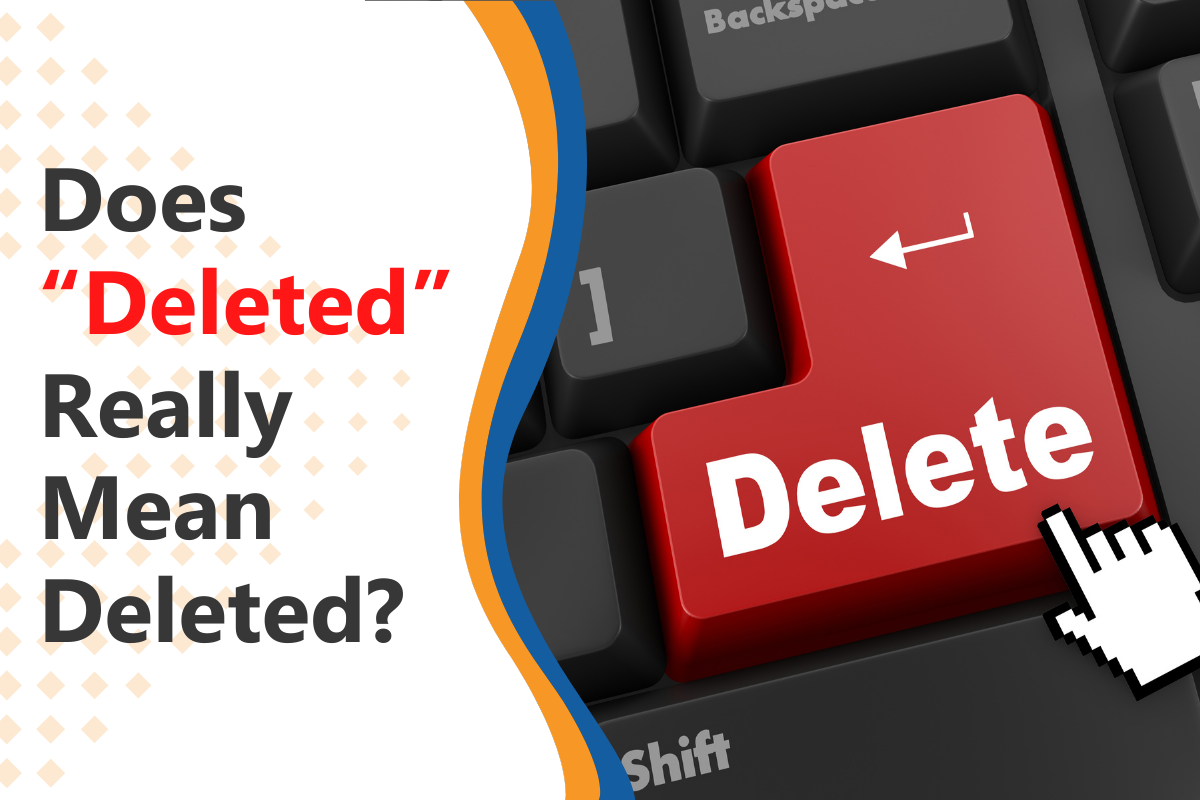Try PCmover
Please note the Evaluation copy of PCmover Enterprise requires you to be logged into a domain when testing. If you would like to test Enterprise without this requirement, please contact corpsales@laplink.com to receive an alternate copy of the software.
Thank you for your interest, and for choosing Laplink Software!
Contact Sales

Does “Deleted” Really Mean Deleted?
Laplink Software is a strong supporter of sustainability, especially when it comes to PCs. A great way to become more ecofriendly is to recycle old tech products when seeking to buy new equipment. A great way to do this is by reselling or donating used equipment. This helps reduce landfill waste and is an awesome way to make some extra cash to put towards the next tech purchase. However, reselling or recycling old technology can be dangerous if the old hard drive is not dealt with correctly. Personal information, bank details, and other sensitive information can be recovered using specialized software that is widely available to the public. Access to unwiped hard drives can significantly increase the risk of intellectual property theft, compromise data integrity, and leave businesses vulnerable to attack.
The website, “The Guardian,” conducted an investigative research study where they compiled 22,000 “deleted” files extracted from eight computers purchased from an auction site on eBay. These computer hard drives were incorrectly wiped and resulted in thousands of personal files left behind at anyone’s disposal. This study ultimately confirmed normal deletion is insufficient to destroy all data. Even more disturbing, The Guardian warned, “The eight PCs contained more valuable personal information than ever as people increasingly shop online, use social networking sites, and take digital photos. Such information could bring identify thieves a hefty payday,” said Sarah Kinder. Regular deletion methods aren’t as successful because of the way PCs hard drives store information. Index files on the PC hard drive store data, updates, and listings of where files are stored on the physical hard drive. When a file is “deleted” on the system, the index on the hard drive is removed but the actual file containing the data remains on the hard drive.
Clearly the threat of incorrectly wiping a hard drive before removal of service is essential for people and businesses alike. Luckily, Laplink Software has introduced a state of the art data erasing software called SafeErase®. SafeErase® is the fastest and most secure way to permanently delete sensitive information. The software uses a series of US Department of Defense (DoD) and the German Federal Office of Information Security (BSI) recommended deletion methods, ensuring a complete wipe of any and all personal data so it is unrecoverable. SafeErase® uses 6 grades of data deletion and offers a series of 35 different deletion cycles executed in random order. The data is also overwritten with zeros to ensure the fastest deletion times. All data, programs, settings, profiles, email archives, etc. on the hard drive will be gone forever. SafeErase® ensures restoration of the hard drive is impossible after the software has been used.
However, if the data intended to be erased from the old PC is also data that needs to preserved and transferred to the new PC, Laplink Software has created PCmover® to alleviate this problem. Laplink Software offers a bundle packaged, PCmover Ultimate®, which includes both PCmover® and SafeErase®. This package allows for safe hard drive deletion from the old PC and a successful data transfer to the new PC, leaving nothing behind on both ends. PCmover Ultimate® and SafeErase® are available at Laplink.com and Amazon.com.
Laplink Software strongly encourages the recycling and reselling of old technology and wants to make the process as safe as possible. Be sustainable and protect your business, family, and personal data with SafeErase® or PCmover Ultimate®. Don’t just delete data, annihilate it! Bringing peace of mind and allowing for the betterment of our environment.


Add Comment